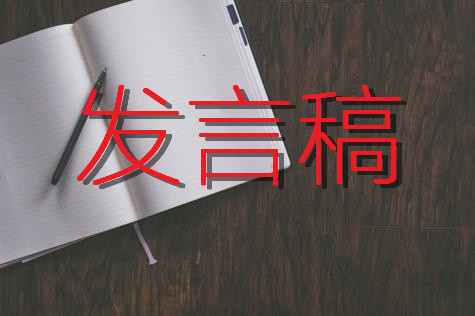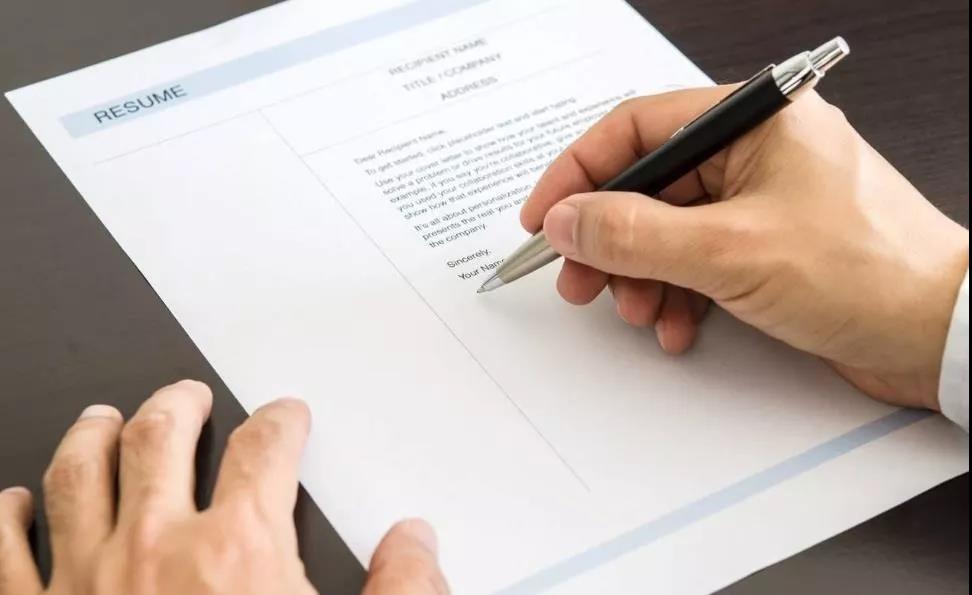孰能生巧英语 “熟”真的能“生巧”吗
时间:2019-04-23 03:25:02 来源:雅意学习网 本文已影响 人 
熟能生巧的说法由来已久。但“熟”真的能“生巧”吗?认知心理学家安德斯.艾瑞森提出了异议,他指出:重要的不光是练习,而是用心地练习,有意识地找到薄弱环节并一一攻克。在他看来,这一点正是庸才与大师的区别所在,也是跨越从良好到卓越这一鸿沟的法宝。
How do you get to Carnegie Hall1)? Practice, practice. In a groundbreaking paper published in 1993, cognitive psychologist Anders Ericsson added a crucial tweak to that old joke. How do you get to Carnegie Hall? Deliberate practice.
It’s not a minor change. The difference between ineffective and effective practice means the difference between mediocrity2) and mastery. If you’re not practicing deliberately—whether it’s a foreign language, a musical instrument or any other new skill—you might as well not practice at all.
I was reminded of the importance of deliberate practice by a fascinating new book, Guitar Zero: The New Musician and the Science of Learning. Its author is Gary Marcus, a cognitive psychologist at New York University who studies how the brain acquires language. Marcus is also a wannabe guitarist who set out on a quest to learn to play at age 38. In Guitar Zero he takes us along for the ride, exploring the relevant research from neuroscience, cognitive science and psychology along the way. One of his main themes is the importance of doing practice right.
“Hundreds of thousands of people took music lessons when they were young and remember little or nothing,” he points out, giving lie to3) the notion that learning an instrument is easiest when you’re a kid. The important thing is not just practice but deliberate practice, “a constant sense of self-evaluation, of focusing on one’s weaknesses, rather than simply fooling around4). Studies show that practice aimed at remedying weaknesses is a better predictor of expertise than raw number of hours; playing for fun and repeating what you already know is not necessarily the same as efficiently reaching a new level. Most of the practice that most people do, most of the time, be it in the pursuit of learning the guitar or improving their golf game, yields almost no effect.”
So how does deliberate practice work? Anders Ericsson’s 1993 paper makes for5) bracing6) reading. He makes it clear that a dutiful daily commitment to practice is not enough. Long hours of practice are not enough. And noodling7) around on the piano or idly taking some swings with a golf club is definitely not enough. “Deliberate practice,” Ericsson declares sternly, “requires effort and is not inherently enjoyable.” Having given us fair warning, he reveals the secret of deliberate practice: relentlessly focusing on our weaknesses and inventing new ways to root them out. Results are carefully monitored, ideally with the help of a coach or teacher, and become grist8) for the next round of ruthless9) self-evaluation. It sounds simple, even obvious, but it’s something most of us avoid. If we play the piano—or, like Marcus, the guitar—or we play golf or speak French, it’s because we like it. We’ve often achieved a level of competency10) that makes us feel good about ourselves. But what we don’t do is intentionally look for ways that we’re failing and hammer away11) at those flaws until they’re gone, then search for more ways we’re messing up12). But almost two decades of research shows that’s exactly what distinguishes the merely good from the great.
In an article titled It’s Not How Much; It’s How, published in the Journal of Research in Music Education in 2009, University of Texas-Austin professor Robert Duke and his colleagues videotaped advanced piano students as they practiced a difficult passage from a Shostakovich13) concerto, then ranked the participants by the quality of their ultimate performance. The researchers found no relationship between excellence of performance and how many times the students had practiced the piece or how long they spent practicing. Rather, “the most notable differences between the practice sessions of the top-ranked pianists and the remaining participants,” Duke and his coauthors wrote, “are related to their handling of errors.”
The best pianists, they determined, addressed their mistakes immediately. They identified the precise location and source of each error, then rehearsed14) that part again and again until it was corrected. Only then would the best students proceed to the rest of the piece. “It was not the case that the top-ranked pianists made fewer errors at the beginning of their practice sessions than did the other pianists,” Duke notes. “But, when errors occurred, the top-ranked pianists seemed much better able to correct them in ways that precluded their recurrence.”
Without deliberate practice, even the most talented individuals will reach a plateau and stay there. For most of us, that’s just fine. But don’t delude15) yourself that you’ll see much improvement unless you’re ready to tackle your mistakes as well as your successes.
想要在卡耐基音乐厅办场音乐会?那只有苦练、再苦练。真的吗?1993年,认知心理学家安德斯·艾瑞森发表了一篇具有突破意义的论文,关键性地扭转了人们这一传统谬见。想要在卡耐基音乐厅办场音乐会?那需要你用心地去练习。
这一变化意义重大。低效率的练习和高效率的练习有着天壤之别,庸才和大师的区别就在于此。倘若你不用心去练——不管是学习外语、练习乐器还是学习其他新的技能——那不如不练。
最近,一本有趣的新书提醒了我用心练习的重要性,这本书名叫《从零开始学吉他:新型音乐家和学习的科学》,作者是盖里·马科斯,纽约大学认知心理学家,主要研究大脑是如何习得语言的。马科斯也希望成为一名吉他手,他开始了一项探索,38岁时开始学习弹吉他。在《从零开始学吉他》一书中,他带着我们徜徉在相关学科领域的探索中——从神经学到认知学再到心理学。他的一个重要主题就是正确练习的重要性。 人们通常认为,小时候学习乐器是最容易的,但马科斯认为这种观点是错误的,他指出:“千千万万的人小时候学习音乐,但长大后却没记住什么甚至忘得一干二净。”重要的不光是练习,而是用心地练习,“一定要经常有一种自我评估的意识,要有关注自己薄弱之处的意识,而不是胡乱练习。研究表明,以弥补缺点为目的的练习要比单纯地长时间练习更能提高技能;为了取乐而演奏,或者重复自己已经掌握的技能,并不一定会让你有效地达到一个新的水平。大多数人在大部分时间里所做的大部分练习都几乎毫无效果,不管是学习吉他弹奏还是提高高尔夫球的技能。”
那么,到底怎样才算是用心地练习呢?读一读安德斯·艾瑞森1993年的那篇论文,就可以找到满意的答案。他在文中明确指出,仅仅每天完成任务似的全力投入到练习中是不够的,长时间地练习也是不够的,毫无章法地“乱弹琴”或者随意挥舞几下高尔夫球棒也肯定是不够的。艾瑞森严肃地指出:“用心练习需要付出努力,而且从根本上来说是无乐趣可言的。”在给予我们足够的警示后,他揭示了用心练习的秘诀:抓住自己的弱点,不停地练习,直至找到新的方法将弱点根除。严格监控练习效果,最好能有一个教练或者老师帮你,然后利用这次监控的结果制定下一轮严格的自我评估。
这方法听起来简单,甚至显而易见,但却是我们大多数人都避之不及的。我们弹奏钢琴,或者像马科斯那样弹奏吉他,或者玩高尔夫球,或者学习法语,都是因为我们喜欢。我们常常会达到某种胜任的水平,这让我们沾沾自喜。但我们不愿做的是有意识地找出薄弱环节,然后不停地练习,直到这些缺陷彻底消失,然后再继续寻找那些令我们无法进步的原因。但将近二十年的研究表明,能否做到这一点,正是仅仅不错与卓越非凡的区别所在。
2009年的《音乐教育研究杂志》刊登了一篇名为《关键不在于多少,而在于方法》的文章。在文中,得克萨斯大学奥斯汀分校的罗伯特·杜克教授和他的同事们用摄像机记录了学钢琴的高级别学生演奏肖斯塔科维奇协奏曲的情形——那是一段难度很大的曲子——然后根据他们最终的表现排定名次。研究者发现,演奏的优秀程度和学生练习该曲目的次数或者花费的时间没有任何关系。相反,杜克和他的合作者写道:“一流演奏者和其他演奏者在练习期间表现出的最显著的差别在于他们处理错误的方式不同。”
他们发现,最优秀的演奏者会立即处理错误。他们会找到每个错误的确切位置和根源,然后一遍又一遍地练习那部分,直到错误被纠正为止。之后,这些优秀的演奏者才会继续练习其他部分。“开始练习的时候,一流的演奏者所犯的错误并不比其他演奏者少,”杜克说,“但是,出现错误时,一流的演奏者似乎更有能力采取方法来纠正错误,这些方法可以防止错误发生。”
没有用心的练习,哪怕最有才华的人也会达到一个平台期,就此止步不前。对我们大多数人来说,这已足够了。但不要自欺欺人,以为自己可以取得更大进步,除非你已准备好应对错误,正如你准备好取得成功一样。
1. Carnegie Hall:卡耐基音乐厅,由慈善家安德鲁·卡耐基(Andrew Carnegie)出资建造,建成于1890年。该音乐厅位于纽约市第七大道881号,是美国古典音乐与流行音乐界的标志性建筑。
2. mediocrity [?mi?di??kr?ti] n. 平庸,平凡
3. give lie to:(相当于to show that something is a lie)说明……是谎言
4. fool around:吊儿郎当,闲荡
5. make for:造成,促成,导致
6. bracing [?bre?s??] adj. 使人振奋的,令人喜欢的
7. noodle [?nu?d(?)l] vi. 玩弄,拨弄,摆弄
8. grist [ɡr?st] n. 有利的事
9. ruthless [?ru?θl?s] adj. 彻底的,坚决的
10. competency [?k?mp?t?ns?] n. 能力,胜任
11. hammer away:努力做,不懈地致力于
12. mess up:犯错误
13. Shostakovich:德米特里·德米特里耶维奇·肖斯塔科维奇(Dmitry Dmitrievitch Shostakovich, 1906~1975),前苏联最重要的作曲家之一,也是当代世界著名的作曲家之一。
14. rehearse [r??h??(r)s] vt. 排演,练习
15. delude [d??lu?d] vt. 欺骗,蒙蔽
推荐访问:生巧









